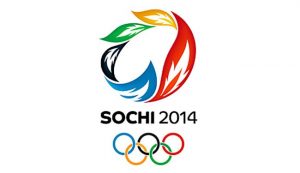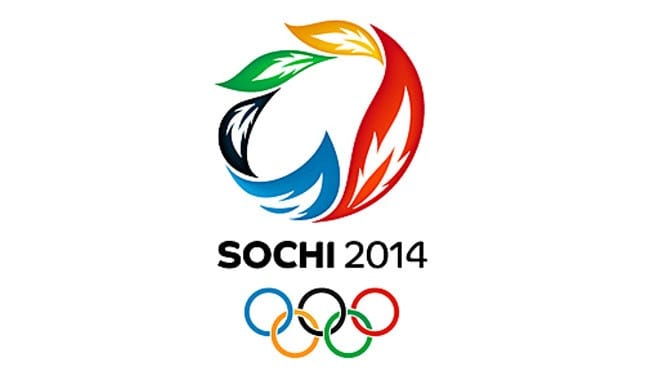 U.S. gay rights activists, buoyed by their unprecedented political successes in 2013, are gearing up to make an international statement at the Winter Olympics in Russia – but know that speaking out against new antigay laws there may be more difficult than anything they faced in America, the San Francisco Chronicle reported.
U.S. gay rights activists, buoyed by their unprecedented political successes in 2013, are gearing up to make an international statement at the Winter Olympics in Russia – but know that speaking out against new antigay laws there may be more difficult than anything they faced in America, the San Francisco Chronicle reported.
Few Western gay rights activists will be in Russia for the Games, which are slated for February in the resort city of Sochi. For Russians who are lesbian, gay, bisexual and transgender, speaking out about their fears – or abuse they’ve suffered since the laws passed earlier this year – can be deadly. There are only 11 paid gay rights activists in Russia, a country of 143 million people.
Boycotting Olympic corporate sponsors won’t happen; most of those U.S. companies are LGBT-friendly. And the U.S. State Department has told activists that if they are caught violating the vaguely defined Russian antigay propaganda law, their home government won’t be able to help them.
Nevertheless, activists like Dustin Lance Black, the Sacramento native and Oscar-winning screenwriter of “Milk” about slain San Francisco Supervisor Harvey Milk, see opportunity. He said the campaign is “all about visibility. It’s about being present. I am telling people that you have to go.”
Faced bomb threats
“This law was constructed to silence gay and lesbian people and their allies. As we said during the 1980s: Silence equals death for this movement,” said Black, who faced bomb threats when he screened his film at an LGBT film festival in St. Petersburg in late November.
Visiting with Russian gay rights activists at that time, Black found them “to be incredibly brave. As a student of gay history, it reminded me of San Francisco in the early 1970s or Salt Lake City for the last five years. It speaks to me of a people who aren’t going to let the pendulum swing back in this manner.”
As Black and Oscar-winning producer Bruce Cohen corral Hollywood stars to highlight the issue, U.S.-based LGBT organizations are preparing to open a multipronged effort to pull off what they described as their own “Olympic moment” in Sochi.
Several antigay laws
They want to call international attention to several new Russian laws created earlier this year. One bans exposing minors to “propaganda of nontraditional sexual relations.” Critics say that law is so vague that someone could be prosecuted for wearing a rainbow T-shirt or holding hands in public with a person of the same sex. Another new law forbids gay foreigners from adopting Russian children.
“It’s like we’re in the Middle Ages again over there where it isn’t safe for LGBT people to live their lives,” said Cohen, the producer of “American Beauty” and “Silver Linings Playbook.”
Cohen worries most about what will happen after the Games, when the international spotlight dims. That’s a focus of Uprising of Love, an organization he co-founded with Black and singer Melissa Etheridge. The growing group of a couple dozen gay and straight performers – like singer Madonna, actress Julianne Moore and actor Jim Parsons – will speak out on human rights abuses in Russia after the last gold medals are handed out.
“Our message is that the world will continue to be watching afterward,” Cohen said.
3 big-name gay athletes
Advocates got a political boost in December when President Obama named three openly gay athletes – tennis star Billie Jean King, Bay Area figure skater Brian Boitano and hockey player Caitlin Cahow – to lead the delegation. Also participating is UC President Janet Napolitano.
They will be the face of the United States as neither Obama nor any Cabinet member will attend the Games, an unusual move. The inclusion of gay athletes in the U.S. delegation is “a finger in the eye of (Russian President Vladimir) Putin,” said Fred Sainz of the Human Rights Campaign.
“It is a completely appropriate response to the heinous nature of these laws,” said Sainz, who represents one of the nation’s largest advocacy organizations for gay, lesbian, bisexual and transgendered people. “We want to create tension over these laws. We want to create turmoil.”
Sainz’s organization donated $100,000 to the Arcus Foundation, which is coordinating the newly created Russian Freedom Fund to sponsor gay and lesbian activists in Russia. It is backed by leading gay rights groups in the U.S.
Another effort is led by GLAAD, a gay rights organization that focuses on media images. It has been urging Olympics broadcaster NBC to report on human rights abuses during the Games and not whitewash the coverage with soft features.
As the Games approached, some U.S. activists felt the tension among gays in Russia firsthand.
Nervous at film screening
On Nov. 30, Cohen, Black and “Milk” director Gus Van Sant appeared at a screening of the film in St. Petersburg. The LGBT-themed Side by Side Film Festival had been delayed five times by bomb threats. Some past festival venues refused to screen films this year, fearing they might violate the new laws.
Black recalled how nervous he was in the moments before he appeared at the screening. Tucked in the satchel he carried was a 60-foot rainbow banner sewn by former San Franciscan Gilbert Baker. It read: “Support Russian Gays!” It was unfurled behind him as he and his fellow Americans spoke at the closing night of the festival.
“I was very nervous because when the bomb threats came in I hadn’t told anyone I had this in my satchel,” Black said. “But that’s what these laws are designed to do: scare people. And if you give in to them, you’ve lost.”
Targeting the biggest corporate sponsors of the Games is another complicated challenge. Many are among the most gay-friendly companies in the U.S.
Gay-friendly firms
Companies like Coca-Cola, GE, Procter and Gamble and Dow Chemical received 100 percent scores from the Human Rights Campaign in its most recent rating of companies for LGBT inclusiveness. Other Olympics sponsors like Visa and McDonald’s got 90 percent marks.
Still, the National Center for Lesbian Rights in San Francisco is circulating a petition called “Stop LGBT Hate in Russia!” It asks corporations that have nondiscrimination policies and do business in Russia to “use the full force of your influence and leadership to speak out against government-sponsored discrimination in Russia.”
“You have to leverage everything you can to make a difference – through sports, economic and international diplomacy,” said Helen Carroll, director of the National Center for Lesbian Rights Sports Project in San Francisco. “The Olympics have always been political in my lifetime. And this year will be no different.”
















